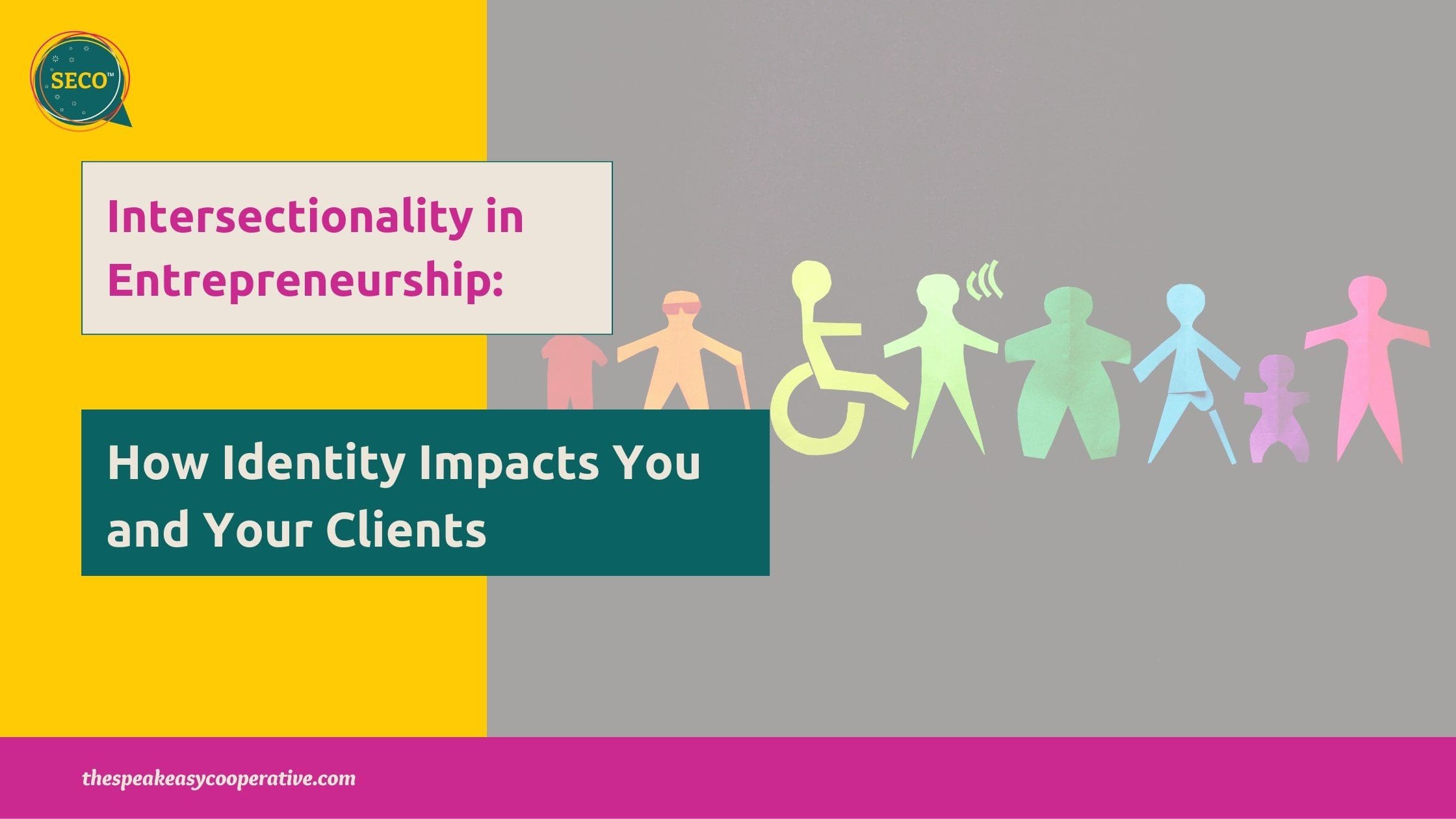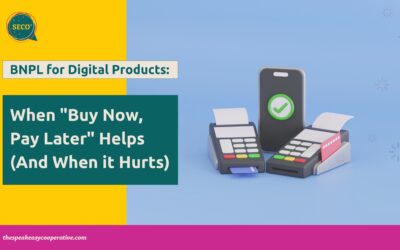The unique challenges that come with navigating the intersection of identity and entrepreneurship is something I seek to be keenly aware of. Being a successful business owner of any type requires tenacity, hard work, and determination. Of course. Duh.
Yet, an understanding of how factors like inaccessibility to wealth and/or resources, education status, race, gender, body type, neurodivergence, and sexuality impact business ownership and opportunities is essential – so that we realize just how much tenacity, hard work, and determination needs to show up differently depending on one’s positionality. And so that we don’t fall victim to believing the exceptional [insert any underestimated population] trope.
Understanding Intersectionality
Intersectionality is a concept that recognizes that individuals have multiple identities that intersect and interact with one another, and that these intersections create unique experiences of privilege and oppression. In the context of business ownership, understanding intersectionality helps entrepreneurs better understand the challenges and the opportunities coming their way, and the way of the business owners after them.
Challenges Faced by Marginalized Entrepreneurs
As a white woman in a fat body, I have often faced challenges in marketing and sales. As someone who isn’t 27 anymore, I’ve faced ageism that has limited my access to funding, a platform, and resources for my work. In terms of client interactions, I am asked to justify pricing, defend policies, or make exceptions to my scope of practice or terms and conditions more often than my white male counterparts.
As a white woman who is well educated, upper-middle class, and owns a home, I have the opportunity to invest in my business, reduce overhead by being able to work from home, and use my myriad educational experiences to develop unique offers that challenge the status quo for business strategy and coaching.
These experiences – negative and positive – are amplified for women, people of color, and queer folx in the entrepreneurial world. Biases and systemic inequities limit access to capital, educational opportunities, and resources. These same biases and systemic inequities cause people unwilling to be aware of their positionality to question our business practices and our fees, and call it “due diligence.”
On the flip side, there are organizations that offer grants, funding, and incubators that seek to expand the footprint of businesses owned by those who do not represent the dominant culture. There are services that can only be provided within context, and products that are only needed by certain segments of the population. There are people doing the good, hard, work – creating equity over equality.
Creating Equity in Business through Intersectionality
Our intersections create both obstacles and openings. Our positionality affects how we act and react to others’ intersections.
My experience as a human who has chosen to work in DEI coaching modalities has demanded that I understand how these factors interact and impact my own story and identity. As a person with a huge amount of privilege, it is only in my reckoning with white supremacy and patriarchal belief and behavior that I am able to develop strategies for dismantling, working through, or overcoming these barriers and building a successful business AND strategies to leverage the unique positionality of each client. Because not everyone can get to a desired outcome in the same way, simply because of their intersections/positionality.
Leveraging Intersectionality to Better Understand Business
When we’re running a business, the money we make means something. How we use it is representative of what we want to see succeed and what we want to fail.
Yet, it’s not just the money. We must think about the people we work with and how they’re affected by what we do in our word and deed. This means considering not just our customers, but also our independent contractors, employees, suppliers, and other business partners, and how they walk through the world. By taking a big-picture view of our business and thinking about how identity impacts everything we do, we can create an enterprise that’s not just fiscally successful, but inclusive and equitable.
The Importance of Recognizing Intersectionality for Entrepreneurs
Intersectionality is about recognizing that our identities and experiences are complex and multifaceted. By embracing this complexity and working to understand how factors like inaccessibility to wealth and/or resources, education status, race, gender, body type, neurodivergence, and sexuality impact our experiences and opportunities, we become more effective and successful at creating a business that does what we say we want it to do – create equity.
If we want equity, we must create equity. And to create equity, we must define inequity.
If we want equity, we must create equity. And to create equity, we must define inequity.
After all, we can’t solve a problem we are unable to define, unwilling to recognize, and ill-equipped to tackle.
Thanks for reading,

If you are not clear what this is referencing, I encourage you to read: The Exceptional Negro: Racism, White Privilege and the Lie of Respectability Politics* by Traci D O’Neal, Stamped from the Beginning: The Definitive History of Racist Ideas in America by Ibram X. Kendi, this article overview on respectability politics, the end of which has an excellent list of further reading options. Also, just poke around that whole site, and don’t miss this glossary, either.
P.S. Speaking of building resources that create equity into your business, the monthly rate for SECO is going up on August 1 to $99/mo, and we are ditching the sign up fee. When you join now, you lock in the and $69/mo rate for the duration of your membership. (There is still the one time $100 sign up fee until August 1.) As always, if you need to cancel, you can do so at anytime, and just come back at whatever the current rate is. Join today.






0 Comments